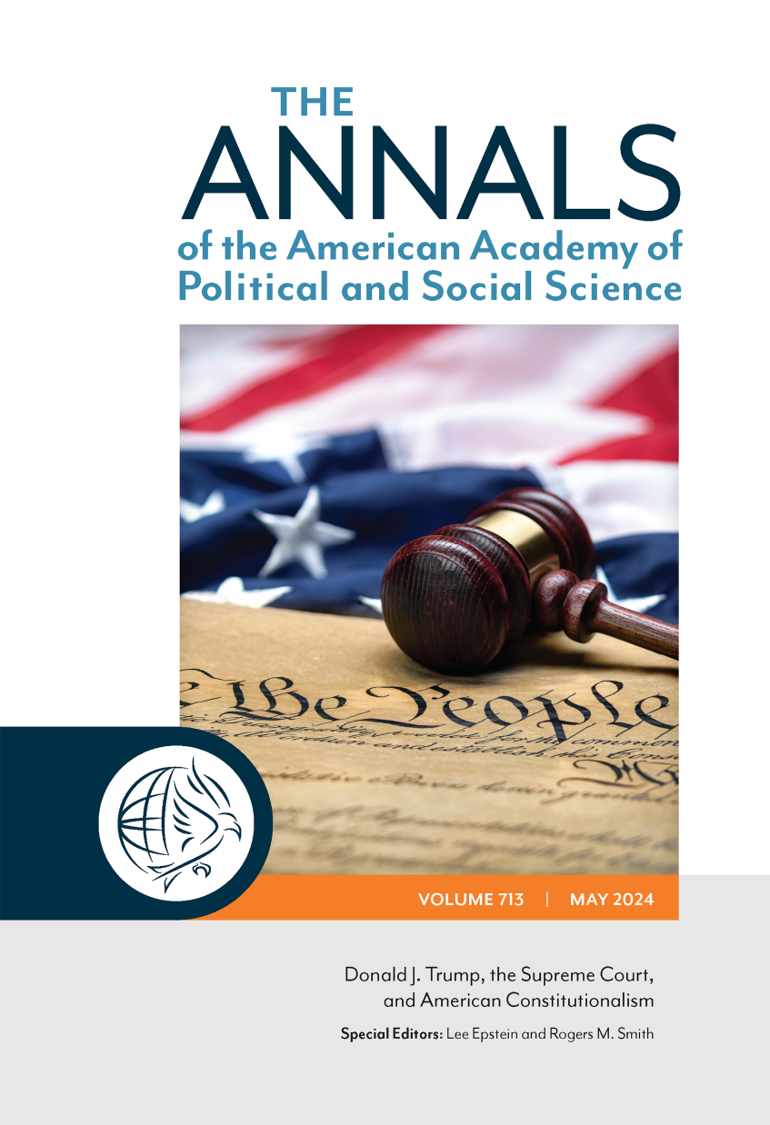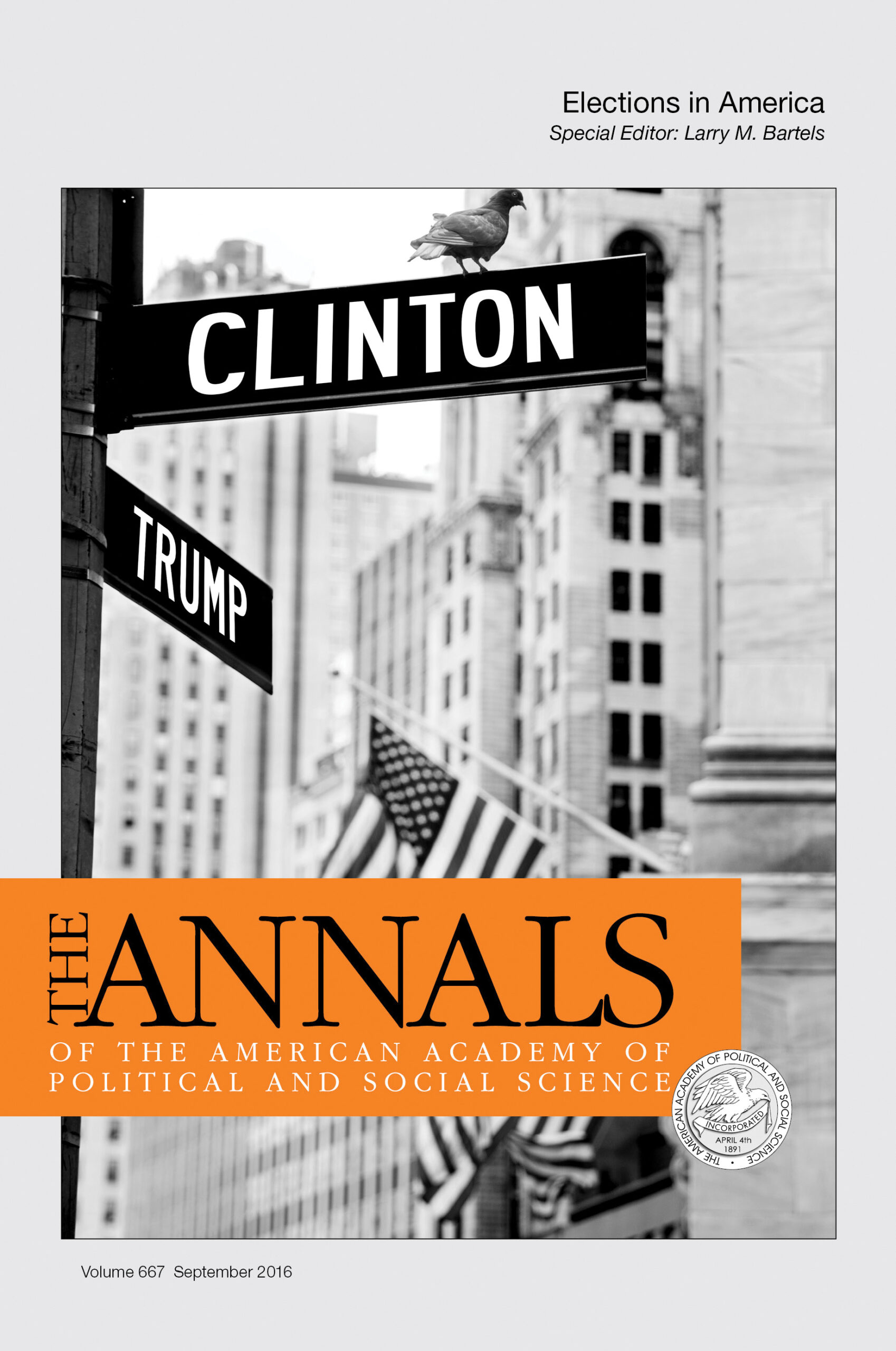Donald J. Trump, the Supreme Court, and American Constitutionalism
Volume 713, May 2024
Special Editors: Lee Epstein and Rogers M. Smith
This volume assesses changes in the Supreme Court since Donald Trump’s first presidency through the early months of his second and what these developments portend for the future. Contributions from leading law professors, political scientists, and journalists examine how the Supreme Court has been influenced by Trump, how the Trump administration is being shaped by the Court, and how the resulting policies are affecting the lives of Americans.


